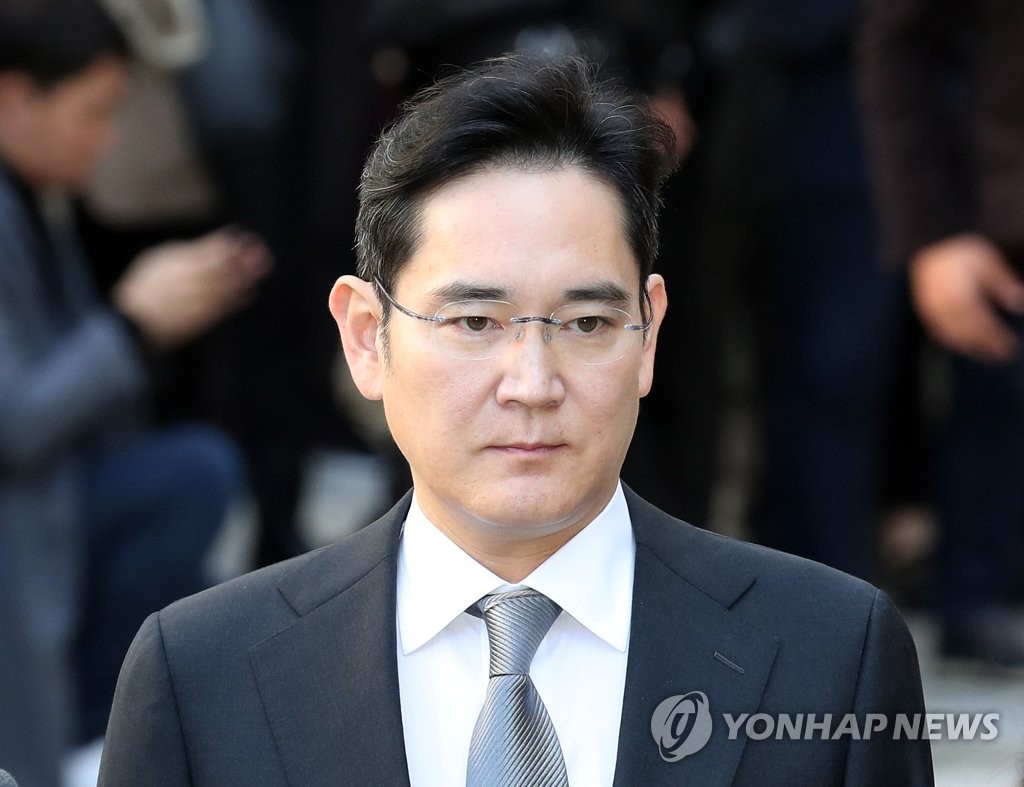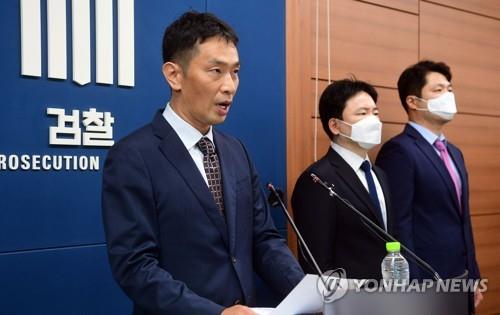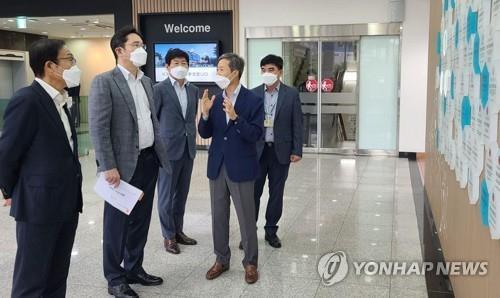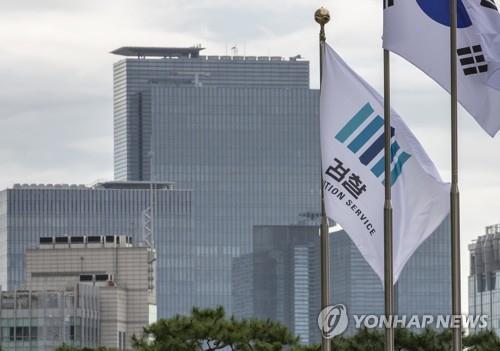- California Assembly OKs highest minimum wage in nation
- S. Korea unveils first graphic cigarette warnings
- US joins with South Korea, Japan in bid to deter North Korea
- LPGA golfer Chun In-gee finally back in action
- S. Korea won’t be top seed in final World Cup qualification round
- US men’s soccer misses 2nd straight Olympics
- US back on track in qualifying with 4-0 win over Guatemala
- High-intensity workout injuries spawn cottage industry
- CDC expands range of Zika mosquitoes into parts of Northeast
- Who knew? ‘The Walking Dead’ is helping families connect
Samsung heir Lee indicted in high-profile succession case
Prosecutors indicted Samsung Group heir Lee Jae-yong without physical detention Tuesday for his role in a controversial merger and alleged accounting fraud, in the latest development of the tumultuous legal saga that has dogged him for years.
Lee, the vice chairman of Samsung Electronics, was charged with unfair trading, stock manipulation, breach of trust in relation to the 2015 merger between two Samsung affiliates seen as a key step toward his succession, and alleged accounting fraud at the pharmaceutical unit of Samsung Biologics.
Ten other former and incumbent Samsung executives, including Choi Gee-sung and Kim Jong-joong, who had led the group’s now-disbanded control tower, the Future Strategy Office, were also indicted on similar charges.
The investigation team led by senior prosecutor Lee Bok-hyun said in a press release that they reached a conclusion that judicial judgment is necessary in the case, given “the clear-cut facts supported by evidence, the gravity of the case and the need to resolve the public’s suspicions surrounding the case.”




Prosecutors suspect that Lee was involved in a companywide scheme to plan the merger of Cheil Industries Inc. and Samsung C&T and fraud in a way to take over control of the country’s biggest conglomerate from his ailing father, Lee Kun-hee, who suffered a heart attack in 2014.
They, in particular, believe that the value of Cheil, of which Lee was the largest shareholder with a stake of 23.2 percent, was inflated and that of Samsung C&T was lowered intentionally prior to the merger.
Lee is also suspected of being part of the alleged plan to inflate the value of Samsung Bioepis, a joint venture between Samsung Biologics, a subsidiary of Cheil Industries, and the U.S.-based Biogen Inc.
The prosecution said Tuesday the merger was done for “the (father-to-son) succession and the consolidation of Lee’s power with minimum possible cost,” calling it “a grave act of crime that disrupts the capital market order” and “disregards investors’ interest.”
“Stern law enforcement on the systematic financial crimes by a corporate will help enhance the fairness and transparency of the capital market,” it added.
Lee has consistently denied the allegations since the investigation started in November 2018.
After the decision came out, the legal team representing Lee released a statement that the investigators had come to a foregone conclusion by “setting its goal from the beginning.”
They called the indictment “unreasonable” and “unfair” and reiterated that the merger was “a legal business activity.”
The prosecution also failed to offer new information “worthy of counterarguments” because most of the points were previously and extensively discussed and vetted during a hearing on an arrest warrant request and a discussion session by an external panel, they said.
Filing the charges against Lee came two months after the prosecution’s independent panel recommended in June not to do so, citing difficulties substantiating some of the prosecution’s claims.
On June 26, the 14-member panel, including one chairperson, concluded in a 10-3 vote that the prosecution’s investigation into the high-profile succession case was not warranted, following a lengthy discussion at the Supreme Prosecutors Office in southern Seoul.
The prosecution has accepted most recommendations by the panel since the system was introduced in January 2018 to keep its power in check and guarantee the fairness of its investigations.
Since the recommendation, prosecutors have gathered various opinions from management and accounting professors and experts in efforts to build up a case against Lee.
The prosecution argued Tuesday that the panel did not sufficiently offer reasons and grounds to drop charges against Lee.
Pursuing the case gained ground as a matter of principle after listening to internal and external voices, including those who had different thoughts about the case from the investigators, it said.
The latest development dashed Samsung’s de facto leader’s hopes to put an end to the prolonged legal battle and focus on the management of Samsung Electronics, the crown jewel of the group.
Lee is up against yet another round of court trials after he was released from prison in February 2018 on a suspended sentence in a corruption case that led to the ouster of former President Park Geun-hye.
He was arrested and charged in February 2017 for giving bribes to then President Park’s friend Choi Soon-sil in return for the government’s backing of the 2015 merger.












